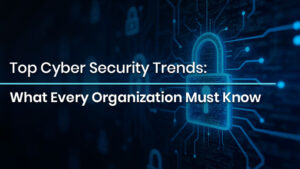Cybersecurity (also known as computer security or information security) is the activity of preventing theft, damage, loss, or unauthorized access to computers, networks, and data.
Bad actors have more possibilities to steal, destroy, or disrupt as our interconnection grows. The surge in cybercrime has increased the demand for cybersecurity experts.
1. Information Systems Security Professional (CISSP)
The cybersecurity professional organization (ISC)2’s CISSP certification is one of the most sought-after qualifications in the business. Earning your CISSP proves that you have IT security experience and can plan, implement, and manage a cybersecurity program.
This advanced certification is for security professionals with expertise who want to further their careers in roles such as:
- Chief Information Security Officer
- Security administrator
- IT security engineer
- Senior security consultant
- Information assurance analyst
You must have five or more years of cumulative work experience in at least two of the eight cybersecurity domains to take the CISSP exam. Security and Risk Management, Asset Security, Security Architecture and Engineering, Communication and Network Security, Identity and Access Management, Security Assessment and Testing, Security Operations, and Software Development Security are just a few of the topics covered.
2. Information Systems Auditor (CISA)
This certification from the ISACA (Institute of Supply Chain Management) helps you demonstrate your experience in identifying security vulnerabilities, devising and implementing controls, and reporting on compliance. It is one of the most well-known qualifications in the field of cybersecurity auditing.
The CISA is for IT professionals in their mid-career who want to develop into positions such as:
- IT audit manager
- Cybersecurity auditor
- Information security analyst
- IT security engineer
- IT project manager
- Manager of Compliance Programs
At least five years of expertise in IT or IS audit, control, security, or assurance is required. One or two years of experience can be substituted for a two- or four-year degree, respectively.
3. Information Security Manager Certification (CISM)
You can certify your knowledge in the management side of information security with the CISM certification from ISACA, which covers issues like governance, program creation, and program, incident, and risk management.
You must have at least five years of experience in information security management to take the CISM exam. With general information security experience, you can satisfy up to two years of this prerequisite. With another valid certification or a graduate degree in an information security-related discipline, you can also skip one or two years.
4. Safety Plus
The CompTIA Security+ certification is an entry-level security certification that verifies the essential abilities required in any cybersecurity position. Demonstrate your ability to assess an organization’s security, monitor and secure cloud, mobile, and Internet of Things (IoT) environments, comprehend risk and compliance rules and regulations, and identify and respond to security issues with this certification.
While there are no mandatory prerequisites for taking the Security+ test, it is recommended that you first acquire your Network+ certification and gain at least two years of IT experience with a security focus.
5. Ethical Hacker Certification (CEH)
Ethical hacking, also known as white hat hacking, penetration testing, or red team hacking, is the practice of legitimately hacking businesses to find weaknesses before harmful actors do. The CEH Certified Ethical Hacker certification is offered by the EC-Council. To demonstrate your knowledge of penetration testing, attack detection, vectors, and prevention, earn this badge.
You can take the CEH test if you have two years of information security job experience or if you have completed an authorized EC-Council program.
6. GIAC Security Essentials Certification (GSEC)
This entry-level security accreditation from the Global Information Assurance Certification (GIAC) is for persons with a background in information systems and networking. This certification verifies your knowledge of active defense, network security, cryptography, incident response, and cloud security.
There are no special prerequisites for taking the GSEC exam. Get some expertise with information systems or computer networking to set yourself up for success.
7. Systems Security Certified Practitioner (SSCP)
Employers will be able to see that you have the abilities to design, deploy, and maintain a secure IT infrastructure if you have this intermediate security certificate from (ISC)2. The exam assesses knowledge of access controls, risk identification, and analysis, security administration, incident response, cryptography, and network, communications, systems, and application security, as well as network, communications, systems, and application security.
Candidates must have at least one year of paid job experience in one or more of the testing areas to be eligible for the SSCP. A bachelor’s or master’s degree in a cybersecurity-related program can also satisfy this requirement.
8. CompTIA Advanced Security Practitioner (CASP+)
It is a certification offered by CompTIA. The CASP+ is for cybersecurity professionals who have demonstrated advanced skills but want to stay in the industry (as opposed to management). Enterprise security domain, risk analysis, software vulnerability, safeguarding cloud and virtualization technologies, and cryptographic approaches are among the advanced subjects covered in the test.
There are no formal prerequisites for taking the CASP+ examination. Only experienced cybersecurity workers with at least 10 years of IT administration expertise should take it, according to CompTIA (including five years of broad hands-on experience with security).
9. GIAC Incident Handler Certification (GCIH)
The GCIH certifies your knowledge of offensive operations, including common attack strategies and vectors, as well as your ability to identify, respond, and defend against attacks. Incident handling, computer crime investigation, hacker exploits, and hacker tools are all included in the certification test.
There are no specific prerequisites for taking the GCIH exam, however having a working knowledge of security principles, networking protocols, and the Windows Command Line is a good idea.
10. Certified Professional in Offensive Security (OSCP)
One of the most sought-after credentials for penetration testers is the OSCP from Offensive Security. The exam assesses your ability to compromise several target devices using a variety of exploitation techniques and provides detailed penetration test reports for each attack.
Exam Requirements: There are no official exam requirements. Networking, Linux, Bash scripting, Perl or Python knowledge, as well as completion of the Penetration Testing with Kali course, are all recommended by Offensive Security.
Conclusion
If you are looking to start a career in Cyber Security, IPSpecialist is the perfect place to start. It offers career advice and assistance. What is IPSpecialist, exactly? IPSpecialist is the answer to all of your problems. Among other things, we provide online courses, study guides, e-books, practice questions, and fast reference sheets. IP Specialist is an e-learning portal that provides online training as well as career advice to help you advance in your career. Examine our Cybersecurity Courses to become a Cyber Security Expert.





